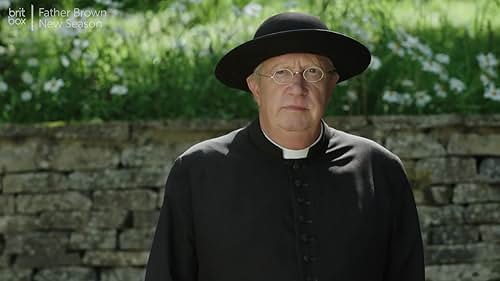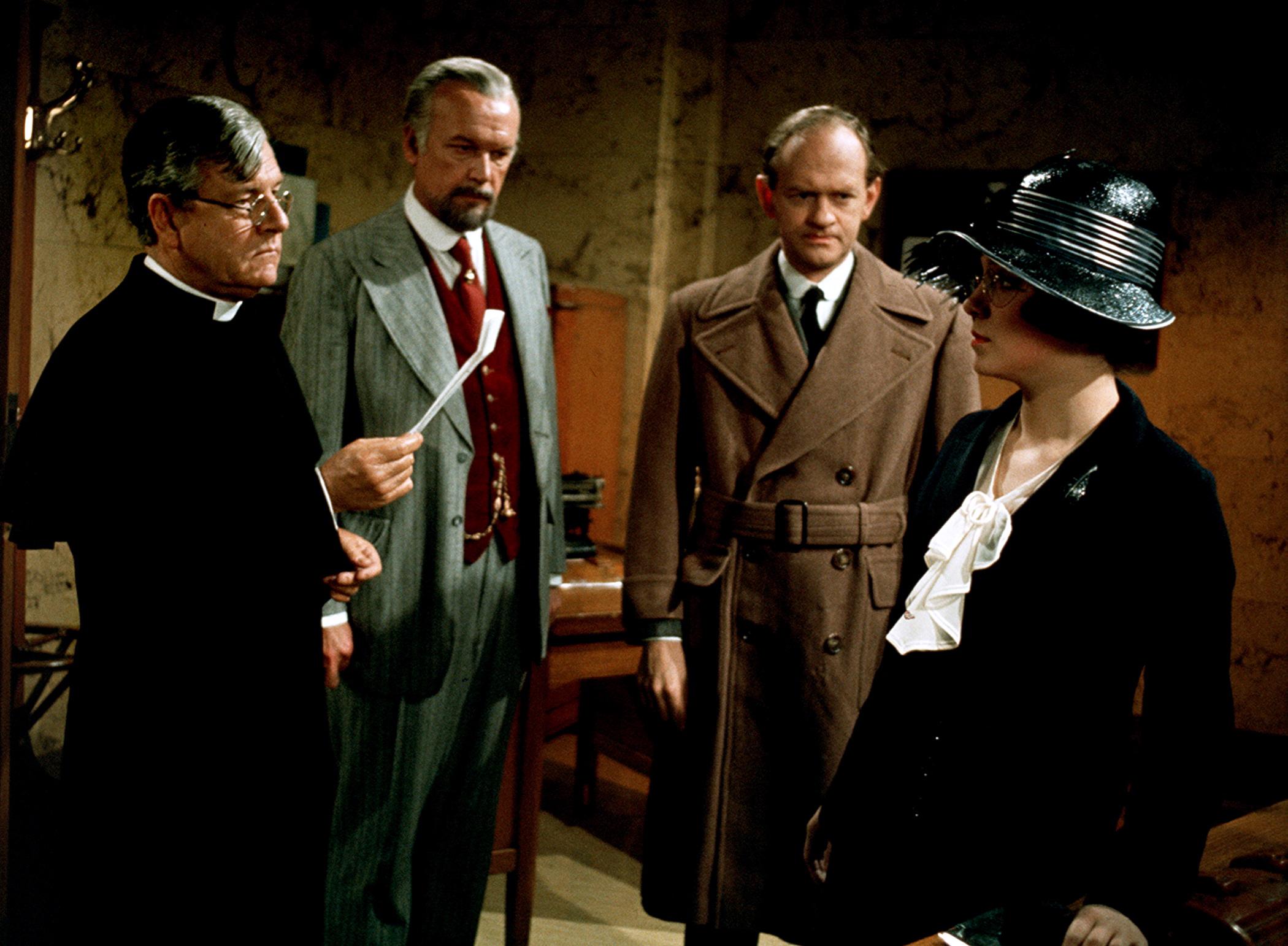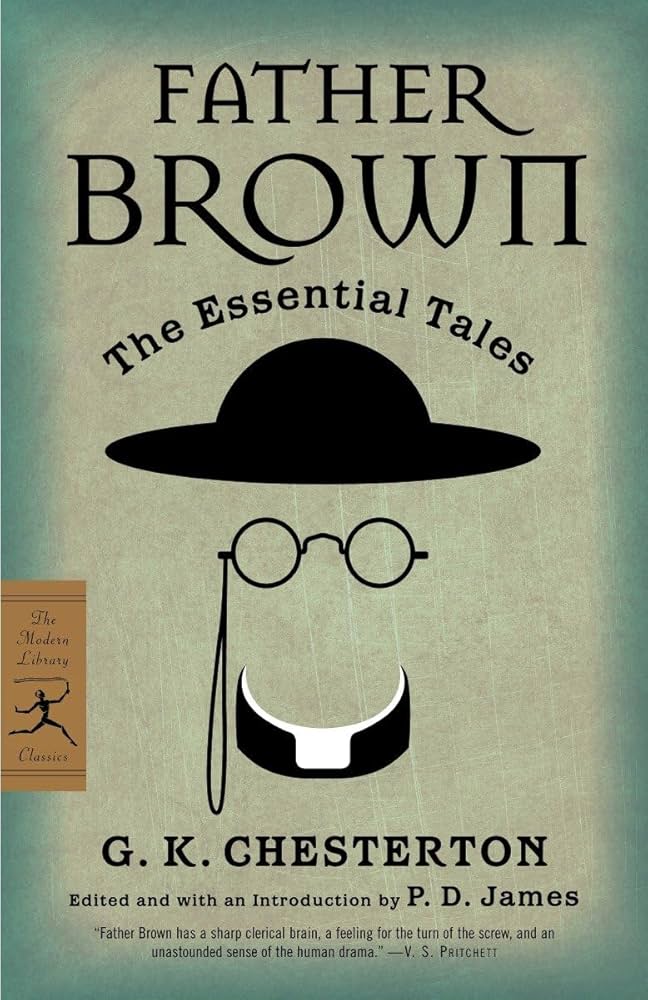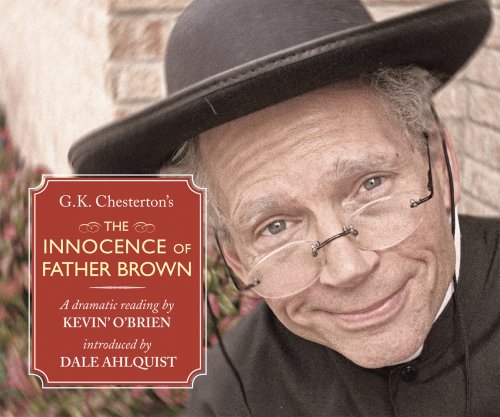Don't miss your chance to invest in 'Fabiola'!
Visit our crowd-funding page to help make Catholic movies!
- Home
- The Importance Of Good Stories
- Fr Brown
Introducing G.K. Chesterton's Fr Brown
Introducing G.K. Chesterton's Fr Brown
Disclaimer: As an Amazon Associate, I receive a small commission if you purchase items on this page at no extra cost to you.
Fr Brown just seems to be often in the right place at the right time. He doesn’t follow crimes and mysteries, they seem to follow him.
When one hears the name "Fr. Brown", he immediately thinks of the charming character forged by the great mind of G.K. Chesterton. I do not say "charming" as physically attractive but rather as alluding to the fact that one cannot help but like this character despite him not being particularly attractive.
During a study of the Fr Brown series of G.K. Chesterton's, one of the things that stood out to me that my instructor mentioned was that the author was extremely revulsed to the haughty and overly confident nature of Canon Doyle's Sherlock Holmes.
Chesterton wanted to draw a contrast that it is not always the most obvious and flamboyant person who is capable of discovering great things, but sometimes the shy, awkward, and inconspicuous as well. Thus was born the idea of Father Brown, described in "The Eye of Apollo" as a "stunted, round-faced priest" who is somehow accidentally always in the right place at the right time.
Father Brown (1974)
Father Brown (1974)
I was very pleasantly surprised by the 1974 adaptation of the Father Brown series. In fact, I will go a step further and say that I was a little disappointed that there wasn't more than one season. I would have loved to see "The Red Moon of Meru" or "The Blue Cross" come to life through the same artful depictions of Father Brown and Flambeau by Kenneth More and Dennis Burgess as I saw in "The Eye of Apollo" and "The Three Tools of Death".
When Mary and I first started watching this series, I will confess I was a little distracted by the 70's filming style with an almost square framing and washed out feel.
Father Brown (2013)
Father Brown (2013)
 Mark Williams in Father Brown (2013)
Mark Williams in Father Brown (2013) BBC
After looking to find something more modern and flashy in the 2013 TV series and also being careful to read the parental warnings, we sat down instead to watch the 1974 TV series and found it quite enjoyable.
I reread about the 2013 version, thinking "Well the old films were definitely made for adults, maybe that's all that is wrong with this series." But after rereading the warnings, I still felt like it was well-worth me passing on.
So, as far as family friendly goes, I would say that this film is definitely a pass. I also have on good authority that it ought to make any Christian viewer uncomfortable.
The Original Father Brown Stories
Original Father Brown Stories
The original Fr Brown stories explode with vibrant storytelling. The way in which Chesterton describes things and people and places makes them ideal for a film retelling. As soon as you begin to read a Father Brown story, a picture appears in your mind of a small, seemingly unimportant priest always with his signature umbrella and goofy hat.
And yet, you know that by the end of the story, this small quiet character will be the one who unravels the whole mess. Another theme that we constantly see in the Father Brown stories is the contrast of this character and a regular detective. Father Brown never goes out of his way to seek crimes. He is not one called when there is a mystery that needs solved. That is his good detective friend Flambeau.
Fr Brown, on the other hand, just seems to be often in the right place at the right time. He doesn’t follow crimes and mysteries, they seem to follow him. And so, with a quiet and unintrusive nature, he puts his mind to work. While others try to prove theories or use a method to solve crimes, Father Brown is way ahead of them with his priestly understanding of human nature.
A Lively Reading of The Innocence of Father Brown by Kevin O'Brien
The Innocence of Father Brown Read by Kevin O'Brien
My first exposure to Father Brown was through the audiobook The Innocence of Father Brown read by Kevin O'Brien. This reading is pleasant to listen to and akin to Jim Wiess' reading style with character voices and engaging tone.
The stories in this collection are some of the best Father Brown stories in my opinion. I don't know if it's because they were the first ones that I was exposed to, but my favorites will always include "The Eye of Apollo", "The Blue Cross", and "The Sins of Prince Saradine".
And this is the case certainly because of Kevin O'Brien's French accent for Flambeau, his high pitched and soft voice for Father Brown, and the New York accent that suddenly appears when Kalon is discovered.
Which Fr Brown Story Is Your Favorite? Join the Conversation!
Which Fr Brown Story Is Your Favorite? Join the Conversation!
Subscribe To Our FREE Email Newsletter:
Our Mission
We believe storytelling has the power to shape souls. In a world where mainstream media often undermines faith and virtue, we are dedicated to reclaiming the art of filmmaking for Christ and His Church. Our mission is simple yet bold: to populate the movie industry with good, Catholic films that inspire, uplift, and ignite a love for truth and beauty.
Populating the movie industry with good, Catholic films that inspire, uplift, and ignite a love for truth and beauty.

















